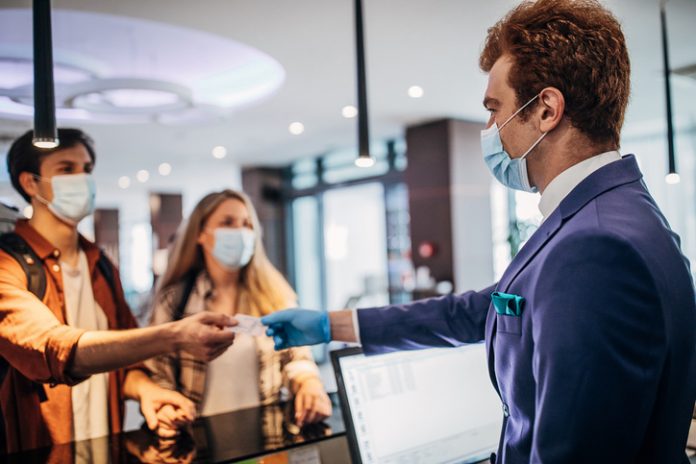The hospitality industry has always been impacted by and responded to major economic and cultural forces and trends. As the industry emerges from the COVID-19 pandemic, there are many unknowns for hotel brands, individual properties, and consumers alike. But with those unknowns, the hospitality industry might need to shift its sales and marketing tactics to appeal to the new landscape of travel.
And U.S. travelers are on the move. A recent survey conducted by Morning Consult for AHLA found that 56 percent of consumers are likely to vacation this year compared to 70 percent during pre-pandemic years. The study also found that 34 percent of respondents were already comfortable staying in a hotel, and 48 percent of respondents tied comfort level to vaccine distribution. Hoteliers will be mindful of consumer comfort level going forward.
Throughout the pandemic, leisure travel in drive-to markets helped sustain operations. As vaccines are distributed more widely and COVID-19 case numbers have somewhat plateaued, the industry expects a leisure travel boom in the United States during summer 2021.
Capturing Demand
Hoteliers looking to capture demand from vacationers, business travelers, and groups comfortable might see a heterogeneous visitor profile. Guests who have been traveling will likely be comfortable and familiar with room configurations and common areas. However, many guests still want space, preferring to stay within the confines of their room instead of venturing to common areas. Using technology and automation that became widespread during the pandemic—like remote check-in and text communications—will continue to be important for more COVID-conscious guests.
Hoteliers might try to expand visits across greater numbers of days as more visitors blend business and vacation into a “staycation.” While hoteliers might be anxious to regain daily rates, pushing promotions to gain extra room nights per stay and number of stays within a given timeframe might drive occupancy levels. Encouraging longer stays can include promotions like cooking classes, fitness and yoga classes, or perks and discounts of local nearby attractions if a hotel is in a drive-to destination that attracts out-of-town travelers.
Global supply chains continue to drag, and combining supply chain with cost pressures on shipping containers, warehousing, and land transportation costs might prevent hotels from renovating. However, even with CapEX and FF&E budgets currently strained for many operators, major brands might want to return to normal property improvement cycles. And post-pandemic guests are likely to be more demanding of cleaning standards; they might take to social media and leave reviews that will impact a hotel’s future booking patterns. Even within time, capital, and supply chain constraints, a renovation might make a hotel more comfortable and appealing to guests traveling this summer.
Thus, the prospective competitive environment will favor property owners who get ahead of the curve with creative sales and marketing approaches to excite guests looking to travel in the months ahead.











